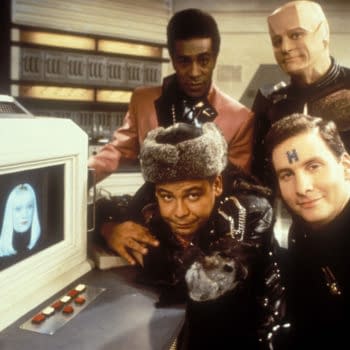Posted in: BBC, Doctor Who, TV | Tagged: bbc, bbc america, bleeding cool, cable, chris chibnall, doctor who, Gallifrey, jo martin, jodie whittaker, russell t davies, steven moffat, streaming, tardis, television, Time Lords, tv
"Doctor Who": The REAL Revelations of "The Timeless Children" [OPINION]
BBC's Doctor Who sparked off a storm of debate and hand-wringing amongst fans in the Series 12 finale "The Timeless Children". It was one of those "everything you knew was wrong!" types of retcons that are the vogue for Science Fiction and superhero stories these days. Love it or hate it, the new lore is here to stay.
As I watched and thought about the Doctor's new origin story, I found some interesting new meanings and answers to the Doctor's story. I'm slightly surprised no one else seemed to pick up on them or discussed them, so I might as well.
!["Doctor Who": The REAL Revelations of "The Timeless Children" [OPINION]](https://mlpnk72yciwc.i.optimole.com/cqhiHLc.IIZS~2ef73/w:auto/h:auto/q:75/https://bleedingcool.com/wp-content/uploads/2020/02/dw_1210_jp_0905_3793_rt.jpg)
"The Doctor is Non-Binary"
When he and the cast were promoting Series 11 at New York Comic Con in 2017, showrunner Chris Chibnall said, "The Doctor is non-binary." Hardly anybody made anything out of that statement, but with "The Timeless Children", Chibnall showed he meant it.
The Doctor had been a white male for over 50 years – the default of most TV heroes. He carried that privilege with him all that time. Russell T. Davies and Steven Moffat opened the door to the idea that Time Lords can change gender when they regenerate. Chibnall is the showrunner who finally walked through that door.

In the reveal of the Timeless Child, the Doctor turned out to be a young girl of colour who came through a portal from another universe. Her adopted mother Tecteun discovered she couldn't die, that she could regenerate into a new body and even another gender. This forms a Science Fictional expression of The Doctor being non-binary. When Tecteun gives her regenerative ability to the other Time Lords, it makes them all non-binary as well.
Doctor Who has always had a strong LGBTQ fan following. LGBTQ fans told me they identify with the Doctor's otherness and outsider status. Now the Doctor truly is one of them, too.
A History of Exploitation, Abuse and Colonialism
The Timeless Child identity reveal also turns the Doctor's childhood into a story of a non-binary child who was systematically abused, exploited and lied to. They obliterated her memories and her origins as they made her their tool and resource, which can be read as an allegory for slavery as well. That she was a black child gives her story a layer of colonialism. That the Ruth Doctor (Jo Martin) is a black woman on the run from The Division, a brutal agency that forces her to do their bidding, also adds to this. This overturns the Doctor's 50-plus year history as a white patriarchal authority figure. She's an underdog again.
Now We Know Why The Doctor Ran Away From Gallifrey…
Exactly why the Doctor stole a TARDIS and ran away from Gallifrey was never made clear. There have been vague answers hinted at: it was an act of rebelling. He wanted to raise his granddaughter away from Gallifrey. Maybe he was just restless. Or he wanted to intervene in events through Space and Time. Moffat had the First Doctor mention that he wanted to test whether Good or Evil was the dominant force in the universe.
Chibnall doesn't spell it out either, but in the reveal of The Timeless Child, he gives us the strongest reasons for the Doctor to keep running away from Gallifrey.
The Doctor knows deep down that Gallifrey was never her true home. She might be unconsciously searching for her real home. She has also been systematically abused and exploited by the Time Lords for thousands, possibly millions of years. Abused children tend to run away from home. Even if she doesn't remember what they did to her, she still felt it.
At the end of the day, all this doesn't really change the show or the Doctor. Her character remains the same. The show remains the same. Maybe she might decide to find out where she originally came from, which opens up a new plotline. And there's nothing here that Chibnall or a future showrunner can't walk back or retcon out at a later date.















